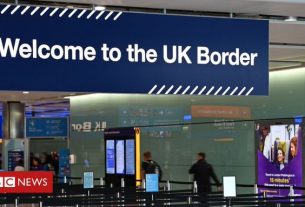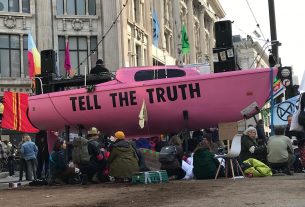Bertha Zúñiga has lived with danger as her constant companion. She vividly recalls the terrifying encounter when machete-wielding attackers pursued her and colleagues through western Honduras, their vehicle blocked by assailants who emerged with weapons drawn. Though they escaped, this violent confrontation represented just one of many threats she would face.
This attack occurred barely a year after Zúñiga’s mother, Berta Cáceres, a renowned indigenous rights advocate, was murdered in her home during March 2016. Following this tragedy, Zúñiga assumed leadership of the Civic Council of Popular and Indigenous Organizations of Honduras (COPINH), continuing her mother’s mission to protect Lenca indigenous territories from commercial exploitation.
A Legacy of Resistance
Cáceres established COPINH when Zúñiga was just a toddler, creating an organization dedicated to defending indigenous Lenca lands against corporate interests that local communities claim cause environmental and cultural harm. The group has opposed controversial developments like the now-suspended Agua Zarca dam project in northwestern Honduras.
Local communities fear this hydropower facility on the Gualcarque River would devastate unique ecosystems while destroying agricultural areas and sources of traditional food and medicine. However, Cáceres’ opposition to the project triggered powerful retaliation from commercial interests.
According to Global Witness, an environmental and human rights investigative organization, Honduras ranked as the world’s third-deadliest country for environmental defenders in 2023, tied with Mexico and trailing only Colombia and Brazil. The nation also recorded the highest per-capita rate of environmental activist killings globally.
The Road to Violence
In April 2013, Cáceres organized a road blockade in the Río Blanco region, preventing Desarrollos Energéticos Sociedad Anónima (DESA), the company operating the Agua Zarca project, from accessing the dam site. This blockade persisted over a year despite eviction attempts and violent confrontations.
Zúñiga observed how this campaign marked an escalation in COPINH’s struggle. Her mother, recognizing the heightened dangers, initially prevented Zúñiga from visiting Río Blanco. When Zúñiga insisted on participating, Cáceres instructed her to use her middle name and conceal her family connection.
Growing up under constant security threats, Zúñiga lacked the freedom most children enjoy. She required escorts to and from school, even as she aged, due to kidnapping concerns. The year before her murder, Cáceres gathered her adult children for a sobering conversation, warning them that anything could happen in Honduras and urging them not to live in fear.
Justice and Ongoing Threats
International legal experts investigating Cáceres’ murder concluded it wasn’t an isolated incident but part of a broader conspiracy. Eight individuals have received sentences related to her death, including former DESA senior employees. Notable convictions include former executive Roberto David Castillo Mejía, sentenced to over 22 years, and former environmental manager Sergio Rodríguez, who received 30 years. Both maintained their innocence, while DESA has consistently denied involvement in the killing.
The violence hasn’t ceased. Days after Cáceres’ death, COPINH member Nelson García was fatally shot. In January 2023, activists Aly Magdaleno Domínguez Ramos and Jairo Bonilla Ayala, who opposed iron ore mining, were found dead in northern Honduras. Last year, Juan López, who protested mining and hydroelectric projects, was shot dead returning from church.
Systemic Issues and Corporate Interests
Honduras grants private companies access to water resources on indigenous territories, often without adequate consultation with affected communities. Laura Furones, a Global Witness senior adviser, explains that corporate interests typically pursue rapid natural resource extraction for maximum economic benefit while ignoring environmental and social impacts.
Government policies favoring private sector exploitation emerged after economic devastation from events like 1998’s Hurricane Mitch and the 2009 coup that removed President José Manuel Zelaya.
Present-Day Dangers
Earlier this year, sensitive information about Zúñiga’s government-provided security detail was leaked, demonstrating that nearly a decade after her mother’s high-profile assassination, the family remains at risk. Screenshots circulated on social media revealing details about her grandmother’s vehicle, including make, model, license plate, and registration information.
The Honduran Special Prosecutor’s Office acknowledged this “extremely serious” confidentiality breach, launching an investigation while strengthening protection measures for Zúñiga and her family.
Days before this leak, doctored images showing Zúñiga’s face with bruises and bloodstains spread across social media, echoing previous smear campaigns against her mother that included manipulated photos with devil horns.
Unwavering Commitment
Despite these threats, Zúñiga remains undeterred. She views her struggle for indigenous land rights as transcending personal and family concerns, believing her mother’s spirit continues guiding and protecting her efforts.
“Her spirit accompanies and protects me,” Zúñiga reflects. “I know she’s with me.”




